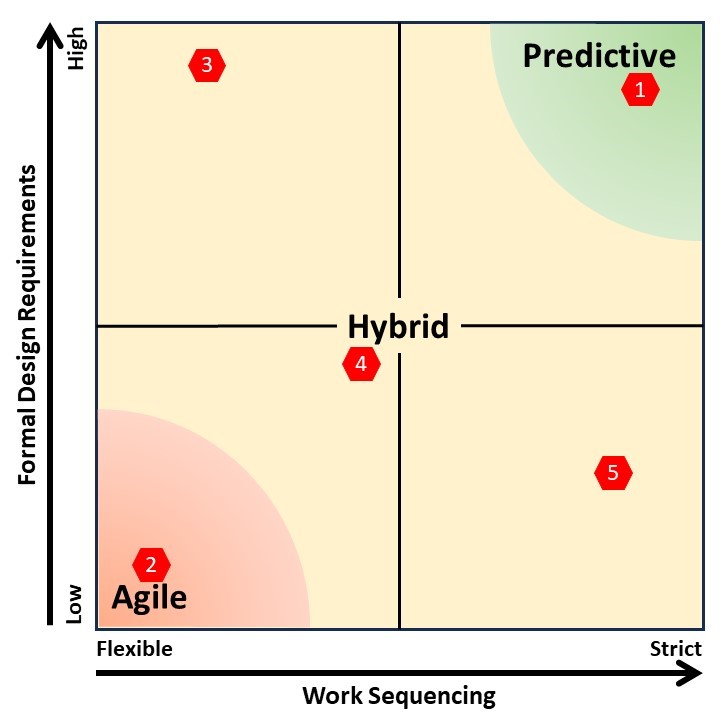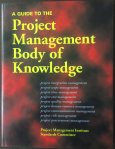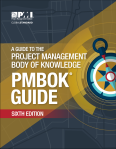The publication of the PMBOK® Guide sixth edition at the beginning of September[1], and the decision last week by ISO committee TC258 to revise ISO standard 21500 should mark the end of an era in the development of project management. For most of the last 50 years, the dominant view of project management associations has been that project management is a generally transferable skill. This has resulted in the view that ‘project management’ can be represented by a single ‘BoK’ (Body of Knowledge), a single ‘competency baseline’ and capability can be demonstrated by passing a single credential or certification. However, whilst the PM professional associations have advocated this view, the job market has always retained a focus on different industry experience – you don’t get an IT project manager’s job without IT experience.

As outlined above, from the emergence of ‘modern project management’ in the 1960s[2] the predominant view of the professional associations and most academics and practitioners has been that ‘project management’ is a single discipline with transferrable skills. A single qualification framework is appropriate and the skills and techniques are generally applicable across all industries. However, in the years between the 1960s and the 2000s, as different industries and disciplines progressively adopted the concept of ‘project management’ this holistic view has become increasingly stressed.
The future suggested in this post still sees project management as a single discipline focused around some high-level objectives; but rather than having a single set of generally accepted good practices applicable to most projects most time, the emerging discipline needs to be capable of embracing a range of different approaches to project management and a diverse toolbox of techniques that can be mixed and matched to optimise the creation of the project’s deliverables.
Project management literature has identified at least three key dimensions to project management:
- An ‘adaptive/agile’ approach -v- a disciplined structured approach.
- The size, scale, and difficulty associated with the work of the project.
- Simple relatively predictable projects -v- complex projects with emergent properties.
In addition to these parameters (mapped in the diagram above), there is also the degree of certainty associated with the work, the technical complexity of the product, and the attitude of the stakeholder community[3].
It’s time for a change.
The project management techniques needed to manage different types of project vary enormously; for example:
- The optimum approach to managing a relatively small, simple project to upgrade a website may benefit from an adaptive/Agile approach to managing the work and should only require a ‘light touch’ to control the work;
- Contrast this to the disciplined approach needed to design and build a new chemical plant where not only do complicated parts need to be manufactured to precise dimensions months in advance and shipped halfway around the world, but the work has to be carefully managed and the parts assembled in a precise sequence to allow all bits to be fitted together properly in a safe working environment.

Both these endeavours are projects, but the project management techniques needed for success are dramatically different. Even within the one project, some elements may benefit from an ‘agile’ approach to the work (eg, systems integration), while other elements of the work will require a very disciplined approach to achieve success – building space rockets really does require ‘rocket science’.
The challenge facing the project management profession and project management academics is first defining the common core of project management, and then adapting the approach to developing and documenting the overall project management body of knowledge in a way that recognises the core commonality of being ‘a project’ whilst allowing different approaches to the management of the work. And once these foundations are in place, flowing these concepts through into documented standards, knowledge frameworks and certifications. In the 21st century a ‘one size fits all’ approach to the management of projects is no longer appropriate.
PMI has started down this path, they have agile certifications and have included both tailorability and agile concepts into the 6th edition of the PMBOK® Guide. Developments in the ISO space are also moving towards this integrated but separated approach to managing different types of projects. ISO 21500 Guidance on Project Management, is being updated and transformed into a higher level ‘management standard’, if this development is successful, in the future a series of implementation guides can be foreseen focused on different types, sizes and phases of project development and delivery.
What’s missing at the moment is a holistic and agreed understanding precisely what a project actually is[4] (this will segregate project management from other forms of management), and then a framework for distinguishing the different types of project that exist within the overall frame of being ‘a project’, but requiring different styles of project management. Some of the multitude of factors that need to be considered include:
- The inherent size of the project usually measured in terms of value;
- The degree of technical difficulty in creating the output (complication) caused by the characteristics of the project’s work and its deliverables, or the time-frame the deliverables are required within;
- The degree of uncertainty involved in the project;
- The degree of complexity associated with the work and the stakeholder relationships;
- The difference between client project management and contractor project management;
- The various methodologies and strategic approaches to managing the project and developing the product (Agile, PRINCE2, etc);
- The maturity of the environment in which the project is being delivered (developing economies/organisations -v- mature economies/organisations); and
- The difference between project, program and portfolio management.
The common core
The core element of all projects is the intentional ‘temporariness’ of the team (organisation) set up to deliver the project. The ‘temporary organisation’ is given an objective to create a deliverable for a client and then to shut down efficiently; in addition, there is an intention on the part of most key stakeholders to treat the work as a ‘project’. This means the project has to be started (initiated), the work planned, then undertaken, and on completion the temporary organisation has to be closed – and of course, all of these activities need monitoring and controlling.
Where 21st century project management needs to diverge from the doctrines of the last century is in the way these overarching objectives are achieved – defining 44 or 49 processes as ‘generally accepted best practices’ is no longer appropriate. The concept of ‘project management’ needs to be able to adapt to very different approaches, allow the project team to select from a toolbox of ‘useful techniques and methodologies’ and then encourage the teams to craft the processes they actually use to optimise the delivery of the project’s outputs to its clients.
Achieving this will require a different approach to developing standards, a different approach to training and qualifying practitioners and the creation of very different communities within the profession that encourages cohesion whilst embracing diversity of practice.
It will be interesting to see if our profession is up to the challenges.
_____________________________
[1] PMBOK® Guide 6th Edition available in Australia: https://mosaicprojects.com.au/shop-pmbok-guide-6th-ed.php
[2] For more on the origins of ‘modern project management’ see: http://www.mosaicprojects.com.au/PDF_Papers/P050_Origins_of_Modern_PM.pdf
[3] For more on the dimensions of project management see: http://www.mosaicprojects.com.au/WhitePapers/WP1072_Project_Size.pdf
[4] For more on defining a project see: /2016/08/11/seeking-a-definition-of-a-project/














